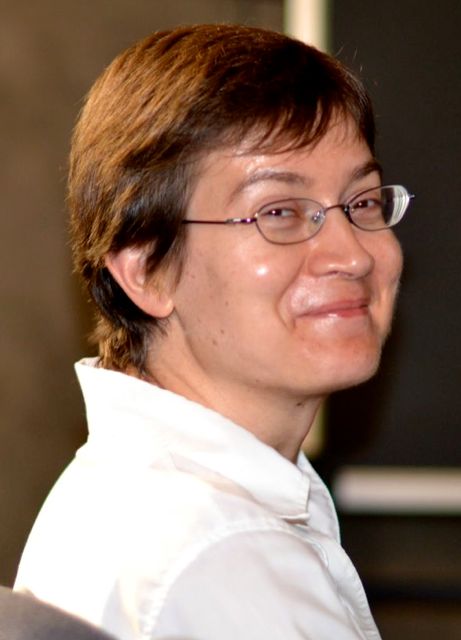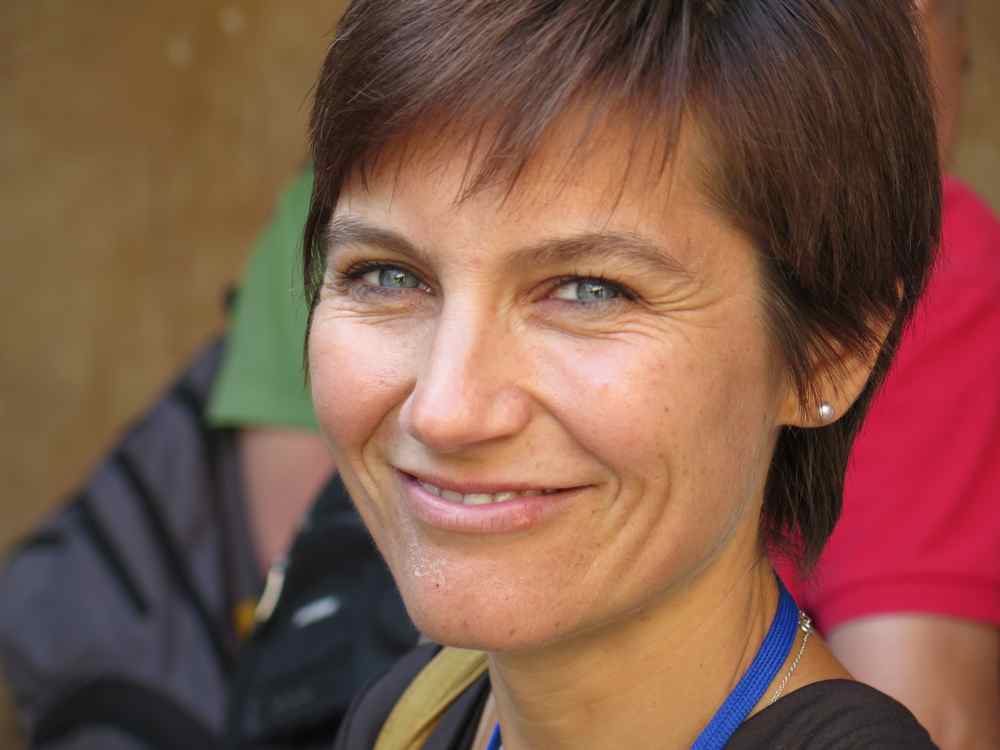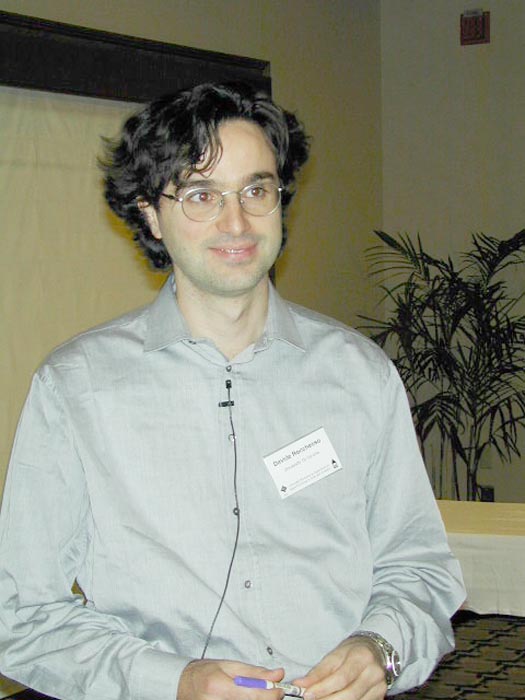Studying at the University of Verona
Here you can find information on the organisational aspects of the Programme, lecture timetables, learning activities and useful contact details for your time at the University, from enrolment to graduation.
Academic calendar
The academic calendar shows the deadlines and scheduled events that are relevant to students, teaching and technical-administrative staff of the University. Public holidays and University closures are also indicated. The academic year normally begins on 1 October each year and ends on 30 September of the following year.
Course calendar
The Academic Calendar sets out the degree programme lecture and exam timetables, as well as the relevant university closure dates..
| Period | From | To |
|---|---|---|
| 1° | Sep 30, 2002 | Nov 29, 2002 |
| 2° | Jan 13, 2003 | Mar 14, 2003 |
| 3° | Apr 7, 2003 | Jun 13, 2003 |
| Session | From | To |
|---|---|---|
| First term | Dec 9, 2002 | Dec 20, 2002 |
| Second term | Mar 24, 2003 | Apr 4, 2003 |
| Third term | Jun 23, 2003 | Jul 4, 2003 |
| First extra term | Jul 7, 2003 | Jul 18, 2003 |
| Second extra term | Sep 1, 2003 | Sep 12, 2003 |
| Third extra term | Sep 15, 2003 | Sep 26, 2003 |
| Session | From | To |
|---|---|---|
| 1 | Mar 17, 2004 | Mar 17, 2004 |
| Period | From | To |
|---|---|---|
| Easter Holidays | Apr 18, 2003 | Apr 27, 2003 |
Exam calendar
Exam dates and rounds are managed by the relevant Science and Engineering Teaching and Student Services Unit.
To view all the exam sessions available, please use the Exam dashboard on ESSE3.
If you forgot your login details or have problems logging in, please contact the relevant IT HelpDesk, or check the login details recovery web page.
Academic staff
Burattini Emilio
 emilio.burattini@univr.it
emilio.burattini@univr.it
 nome.cognome[at]uniud.it
nome.cognome[at]uniud.it

Martignano Maurizio
 maurizio.martignano@esa.int
maurizio.martignano@esa.int
 +31715656749
+31715656749
 angelo.pica@univr.it
angelo.pica@univr.it
Piccinini Nicola
 piccinini@sci.univr.it
piccinini@sci.univr.it
 +39 349 7461319
+39 349 7461319
 davide.rocchesso@univr.it
davide.rocchesso@univr.it

Rossato Rosalba
 rossato@sci.univr.it
rossato@sci.univr.it
 +39 045 802 7077
+39 045 802 7077

Scollo Giuseppe
 giuseppe . scollo at univr . it
giuseppe . scollo at univr . it
 045 802 7940
045 802 7940
Study Plan
The Study Plan includes all modules, teaching and learning activities that each student will need to undertake during their time at the University.
Please select your Study Plan based on your enrollment year.
4° Year activated in the A.Y. 2005/2006
| Modules | Credits | TAF | SSD |
|---|
Un insegnamento affine dell'area fisica a scelta dello studenteDue insegnamenti affini (area matematica) a scelta per complessivi 10 crediti4 insegnamenti caratterizzanti a scelta per un totale di 20 crediti (la scelta di 4 insegn. al 4° anno è un suggerimento, il vincolo è: 7 insegn. tra N.6 e N.8)5° Year activated in the A.Y. 2006/2007
| Modules | Credits | TAF | SSD |
|---|
3 insegnamenti caratterizzanti a scelta per un totale di 15 crediti (la scelta di 3 insegn. al 5° anno è un suggerimento, il vincolo è: 7 insegn. tra N.6 e N.8)| Modules | Credits | TAF | SSD |
|---|
| Modules | Credits | TAF | SSD |
|---|
Un insegnamento affine dell'area fisica a scelta dello studenteDue insegnamenti affini (area matematica) a scelta per complessivi 10 crediti4 insegnamenti caratterizzanti a scelta per un totale di 20 crediti (la scelta di 4 insegn. al 4° anno è un suggerimento, il vincolo è: 7 insegn. tra N.6 e N.8)| Modules | Credits | TAF | SSD |
|---|
3 insegnamenti caratterizzanti a scelta per un totale di 15 crediti (la scelta di 3 insegn. al 5° anno è un suggerimento, il vincolo è: 7 insegn. tra N.6 e N.8)Legend | Type of training activity (TTA)
TAF (Type of Educational Activity) All courses and activities are classified into different types of educational activities, indicated by a letter.
Artificial Intelligence (2005/2006)
Teaching code
4S00075
Teacher
Credits
5
Language
Italian
Scientific Disciplinary Sector (SSD)
INF/01 - INFORMATICS
Period
First four month term for the second and later years dal Oct 3, 2005 al Dec 2, 2005.
Location
VERONA
Learning outcomes
Objectives:
This class introduces the student to the field of Artificial Intelligence, presenting its basic problems, concepts and methods. After learning the general framework of automated problem solving, AI problems and techniques are studied through specific areas of AI, such as constraint problem solving, game playing, planning and reasoning. After taking this class, the student is ready to work on an LS/LM thesis in Artificial Intelligence.
Program
Program:
Methods of Artificial Intelligence: problem solving as search in a state space: uninformed search procedures; informed search procedures and heuristic search; constraint problem solving: unification; propositional satisfiability (SAT); games (optional).
Knowledge representation: use of propositional logic and first-order logic.
Automated reasoning methods: resolution, tableaux or model elimination, paramodulation and rewriting (hints).
Planning (optional).
| Author | Title | Publishing house | Year | ISBN | Notes |
|---|---|---|---|---|---|
| Elaine Rich, Kevin Knight | Artificial Intelligence (Edizione 2) | McGraw Hill | 1991 | 0070522634 | Altro libro di riferimento per intelligenza artificiale |
| Stuart Russell, Peter Norvig | Artificial Intelligence -- A Modern Approach (Edizione 1) | Prentice Hall | 1995 | 0131038052 | Versione originale della prima edizione del testo adottato |
| Stuart Russell, Peter Norvig | Artificial Intelligence: A Modern Approach (Edizione 2) | Prentice Hall | 2003 | 0137903952 | Versione originale del testo adottato |
| Ricardo Caferra, Alexander Leitsch, Nicolas Peltier | Automated Model Building (Edizione 1) | Kluwer Academic Publishers | 2004 | 1-4020-265 | Libro di riferimento per ragionamento automatico |
| David Poole, Alan Mackworth, Randy Goebel | Computational Intelligence -- A logical approach (Edizione 1) | Oxford University Press | 1998 | 0195102703 | Altro libro di riferimento per intelligenza artificiale |
| Rolf Socher-Ambrosius, Patricia Johann | Deduction Systems (Edizione 1) | Springer Verlag | 1997 | 0387948473 | Libro di riferimento per ragionamento automatico |
| Klaus Truemper | Design of Logic-based Intelligent Systems (Edizione 1) | John Wiley and Sons | 2004 | 0471484032 | Libro di riferimento per ragionamento automatico |
| Raymond M. Smullyan | First-order logic | Dover Publications | 1995 | 0486683702 | Libro di riferimento per ragionamento automatico |
| Allan Ramsay | Formal Methods in Artificial Intelligence (Edizione 1) | Cambridge University Press | 1989 | 0521424216 | Libro di riferimento per ragionamento automatico |
| Judea Pearl | Heuristics: Intelligent search strategies for computer problem solving (Edizione 1) | Addison Wesley | 1985 | 0-201-0559 | Libro di riferimento per tecniche di ricerca |
| Stuart Russell, Peter Norvig | Intelligenza artificiale: Un approccio moderno (Edizione 2) | Pearson Education Italia | 2005 | 88-7192-22 | Adottato |
| Stuart Russell, Peter Norvig | Intelligenza Artificiale: un approccio moderno (Edizione 1) | UTET libreria | 1998 | Versione italiana della prima edizione del testo adottato | |
| Chin-Liang Chang, Richard Char-Tung Lee | Symbolic Logic and Mechanical Theorem Proving (Edizione 1) | Academic Press | 1973 | 0121703509 | Libro di riferimento per ragionamento automatico |
| Alexander Leitsch | The Resolution Calculus (Edizione 1) | Springer | 1997 | 3540618821 | Libro di riferimento per ragionamento automatico |
Examination Methods
Esame mediante prove parziali:
questa modalità vale solo per il primo appello dopo la fine delle lezioni, ovvero per la sessione di dicembre 2005, essendo il corso nel I quadrimestre dell'AA 2005-06; l'esame consta di un compito scritto di due ore (C) e di un progetto individuale di programmazione (P) da realizzare a casa o in laboratorio durante il corso; il voto d'esame è dato da: 50% C + 50% P; passato il primo appello dopo la fine delle lezioni, le prove parziali non valgono più nulla.
Esame senza prove parziali:
in questa modalità, l'esame consta di un unico compito scritto (E), di difficoltà tale da uguagliare C + P, il cui voto determina il voto d'esame. Questa modalità vale per tutti gli appelli, incluso il primo dopo la fine delle lezioni. Tuttavia chi sostiene l'esame E al primo appello perde il voto eventualmente maturato con 50% C + 50% P.
Nota: per semplicità organizzativa e onde non disturbare altri corsi con prove scritte fuori calendario, il compito scritto C (prova parziale) si terrà nella stessa data, ora e luogo dell'esame E della sessione di dicembre (naturalmente contenuto e durata di C ed E saranno diversi).
Registrazione: a ogni sessione d'esame ci saranno due date: una per lo scritto ed una per registrare il voto. Per chi sostiene l'esame e lo registra nella stessa sessione, è sufficiente iscriversi alla prima. Iscriversi alla seconda data è necessario per chi ha sostenuto l'esame in una sessione precedente, ma non lo ha registrato.
Regolamento: tutti gli elaborati sono individuali; è severamente vietato copiare e scambiare/passare/condividere codice. Tutti gli elaborati che mostrano di essere stati copiati ricevono voto 0, senza distinzione tra chi copia e chi fa copiare.
Type D and Type F activities
Modules not yet included
Career prospects
Module/Programme news
News for students
There you will find information, resources and services useful during your time at the University (Student’s exam record, your study plan on ESSE3, Distance Learning courses, university email account, office forms, administrative procedures, etc.). You can log into MyUnivr with your GIA login details: only in this way will you be able to receive notification of all the notices from your teachers and your secretariat via email and soon also via the Univr app.

























